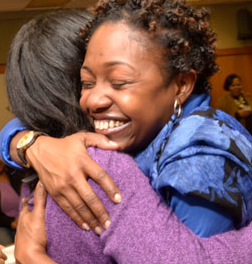I’m neurotic. You are too. Ready for a pleasant surprise? Neurosis is normal. Anxiety is normal. Both are…get this: helpful.
Neurosis is how normal people cope with a changing environment.
As stressful situations enter our lives we have anxiety, and we deal with it in a number of ways. Neurotic ways. A neurotic person (like you or me) is just someone who is dealing with anxiety-producing pain, hurt, or stress. You know, the normal stuff of life. If we didn’t become anxious we wouldn’t have the motivating to improve our situation. We wouldn’t be…human.
It’s only when our neurotic method of coping becomes a main characteristic in our life does it fall into a category called “a neurotic disorder“. (Neurosis should not be mistaken for psychosis, which refers a loss of connection with reality and will include delusions or hallucinations. To be clear, both disorder and psychosis should be helped by a trained pro.)
For a bit of a primer here is the insight of Dr. George Boeree. Effects of neurosis can involve these (all too familiar) states:
• Anxiety, sadness, depression, anger, irritability, mental confusion, low sense of self-worth. Again, normal stuff we experience from time to time.
• Behavioral symptoms like phobic avoidance, vigilance, impulsive and compulsive acts, or lethargy…on the other side of the spectrum.
• Cognitive problems like unpleasant or disturbing thoughts, repeating thoughts and obsessions, habitual fantasizing, negativity, and cynicism.
• Interpersonal problems like unhealthy dependency, aggressiveness, perfectionism, schizoid isolation (which sounds like the name of a punk band, right? Actually, it relates to social avoidance), and socio-culturally inappropriate behaviors, among a few. [1]
In each case a certain amount of any of these traits fall into the range of normal human behavior in the face of stress. It is the prolonged characteristics which signal a greater problem, and needed healing.
You could be more typical than you’ve imagined. I wonder if we go around thinking we are incredibly messed up, when we aren’t doing so terribly bad after all. It helps to periodically assess how you are doing on this front.
Personally, I was reflecting on all this. I was rather relieved to learn that neurosis is normal. Am I the only one who didn’t know this? I took some inventory of my own neurotic outcroppings. (I felt brave at that moment.)
• How much thought was I putting into my neurotic behavior? Little.
• Were any neurotic behaviors the “boss of me”? Yep.
For instance, sometimes I crave and ingest sugar. Sometimes I numb-out with tech, or some distraction. Sometimes I grow irritable and wallow a bit. I could go on and on, but I’ll stop before we both get too embarrassed.
I thought, “What if I could be more conscious of how I direct my neurosis, since stress and the neurotic response are in fact unavoidable?” I can’t be rid of them, but I can make wiser choices.
Instead of opening the fridge when I feel stressed, I’ll do a set or two of arm curls. Or, maybe I’ll make a journal entry, pray, meditate, or take a walk instead of strolling the information super highway to distract myself. (I thought I’d bring in a 1990s internet term to keep you on your toes.)
Have you considered some of your unconscious (yet normal) neurotic mechanisms recently? How could they be better directed in your life?
I’d love to hear your thoughts or comments on the topic.
What are some of the neurotic things you do?
Source: http://en.wikipedia.org/wiki/Neurosis






